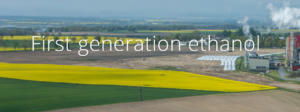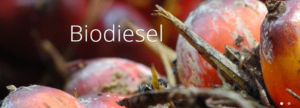Enzyme recycling is the key to cost reduction
The increasing concern for global warming and depletion of resources is the driving force behind the development of biofuels. By using natural resources, CO2 production is largely compensated for. Using waste streams, for instance from agricultrual, industrial or municipal sources is both more challenging and promising.
In many biofuel production processes, enzymes are used or can easily be implemented. Nowadays, these enzymes are used as single use soluble enzymes and discarded long before they are exhausted.
Our focus is on cost reduction of the enzyme usage by smart enzyme immobilization, separation and re-use.

Second generation ethanol
Enzyme costs are key to competitive 2G biorefineries Celluloses and hemicelluloses are the main sources for second generation bioethanol. Sturdy ...

First generation ethanol
Every ethanol plant spends millions on amylases. Wheat, corn, cassave, cane and sugarbeet are common feedstocks for first generation ethanol ...

